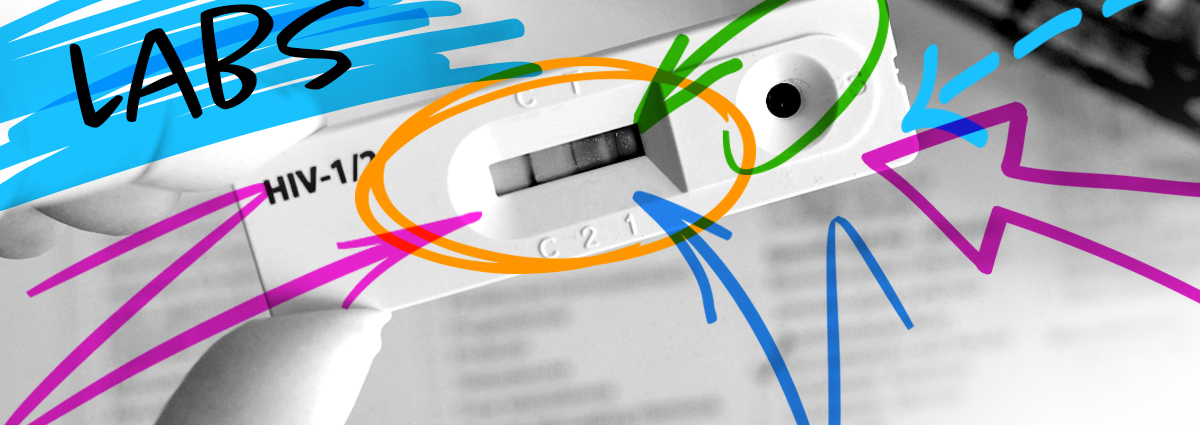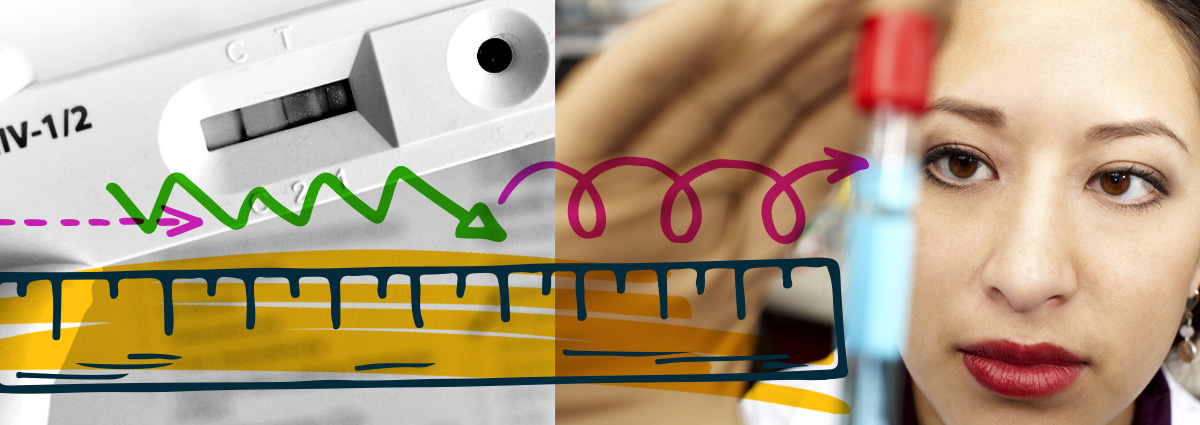
By: Ann K. Avery, MD, Infectious Disease Physician at MetroHealth Medical Center
Lab tests tell you and your doctor what’s happening to you at the cellular level, and the results can help your doctors know how best to treat you.
For people living with HIV or other chronic illnesses, lab tests are one of the most important parts of managing your health. These tests can empower you to live a long, happy life if you pay attention to what they’re telling you.
Tests reveal the facts and those facts become the foundation for everything we do to treat HIV.

What do the tests find?
The most important HIV labs measure your CD4 count and viral load. Here’s a quick look both:
CD4 count. CD4 is a kind of white blood cell. You want a healthy amount of CD4 cells in your body because they are the ones who sound the alarm and tell your body which antibodies to create to fight off invaders. A healthy CD4 count is between about 600 and 1,500.
HIV meds protect your CD4 cells from HIV, which in turn keeps your immune system strong. But if you stop taking your meds, you’re basically giving HIV a green light to go crazy on your CD4 cells and body. Ain’t nobody have time for that, so be sure to pop those pills when and how you’re supposed to! 😉
Viral load. The number of HIV virus copies in your blood is called your viral load. The lower your viral load, the better. Keeping track of your viral load can help you and your doctor know how well your meds are working. If you take them as prescribed, your HIV meds can reduce your viral load to the point where it’s undetectable — which means it’s damn near impossible for you to accidentally transmit HIV to someone else. Remember, once you’ve been undetectable for six months or longer, undetectable = untransmittable.
Come join our private, stigma-free, supportive community.
Health management tools with medication & appointment reminders.
Social networking in a community conversation & private chats.

The tests don’t stop there
It’s tempting to think if you know your CD4 count and your viral load that you don't need to know anything more. But it turns out that your doctor needs to add in all sorts of tests to get a good idea of how healthy you are! Whether you’re living with HIV or not, getting things like your glucose and cholesterol levels, blood pressure, liver and kidney function, and more are an important part of your annual labs. Take some time to educate yourself on lab tests. They are key to understanding your body and how to keep you at your best. 🙂
What else has Positive Peers posted on HIV-related testing?
Glad you asked – this is one of our favorite topics.
- Why is it Important to Know if You’ve Got HIV
- Why Should I Get Tested for HIV?
- What Happens During an HIV Test?
- What are CD4 Counts and Viral Loads?
Related Blogs:


